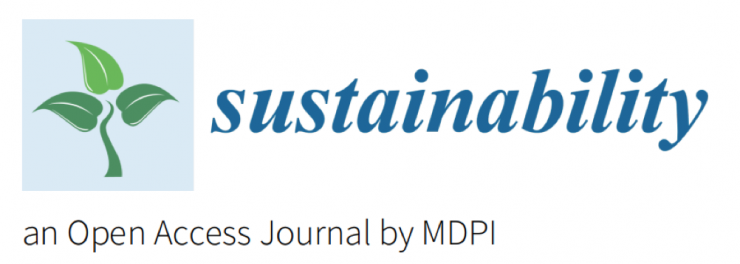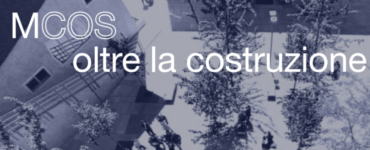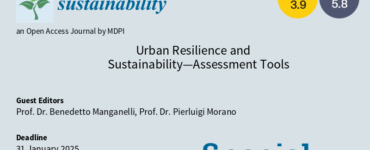A special issue of Sustainability (ISSN 2071-1050).
Deadline for manuscript submissions: 30 June 2020.
Dear Colleagues,
The increasing urbanization that is characterizing our planet is causing a growing unsustainability, posing difficult challenges. It produces economic wealth but, at the same time, it is source of ecological and social poverty. Climate change is one of the most worrying negative effects. If in the past this phenomenon proceeded slowly, mainly due to natural processes, over time also human activities have contributed to increase the degradation of environmental components, putting a strain on the adaptive capacities of natural and urban ecosystems.
In this problematic context, the organizational structure of cities is more and more being questioned and investigated and cities can become a places wherein to implement practices of mitigation, adaptation and urban regeneration able to face these problems.
In this framework, ecosystem services, defined as the “multiple benefits provided by ecosystems to the human race” (MA, 2005), can play a key role in addressing issues related to territorial development and regeneration.
There are many classifications of ecosystem services, which have been categorized by MA (Millennium Ecosystem Assessment) and TEEB (The Economics of Ecosystems and Biodiversity) studies into four groups: 1) supporting services, 2) provisioning services, 3) regulating services, 4) cultural services.
The basic concept of ecosystem services considers that human wellbeing is related to the services provided by nature and that their degradation leads to a reduction of this wellbeing also in terms of economic value. Services produced by ecosystems include, for example, food, drinking water, materials or fuel, natural waste recycling, climate and tide regulation.
Ecosystem services play a fundamental role in society. The loss of ecosystem services contributes to food and energy uncertainty, to increase vulnerability to natural disasters, such as floods or tropical storms, to decrease the health level, to reduce the availability and quality of water resources and affects cultural heritage. So, they represent a significant percentage of the “total economic value” of our planet (Costanza et al., 1997).
Considering that many impacts on the supply of ecosystem services are influenced by changes in land use, which can lead to fragmentation and loss of ecosystem functions, they are closely linked to urban regeneration processes and strategies.
Urban planning processes supported by ecosystem services analysis lead policy makers to re-orient their strategies for sustainable territorial transformation. To this end, the assessment of the impacts of urban transformation processes and vulnerabilities should not be limited only to the economic analysis, but it should include multidimensional impacts, taking into account also no-market goods.
Therefore, ecosystem services can play a fundamental role in the evaluation processes of political choices, public investments and entrepreneurial activities. Different approaches, models and methods have been proposed in the different research fields for qualitative, quantitative and monetary evaluation of ecosystem services. There are several types of tools (biophysical, economic, mixed, etc.) referred to different scales (regional, local, etc.), aimed at biophysical and/or economic dimensions, also integrating Multi-Criteria Analysis with Geographical Information System (GIS) (D’Auria et al, 2018).
The ecosystem services assessment prompts a new approach on planning for increasing health conditions for citizens and reducing the environmental risk in urban areas. Currently, planning tools often neglect the ecosystem services and their dynamic interactions, while it is necessary take also in account innovative approaches to address issues that today represent key points of local, national and international policies (United Nations, 2015).
This Special Issue is addressed to scholars that study and analyse sustainable urban regeneration strategies and methodologies for ecosystem services assessment and territorial analysis.
The aim of this Special Issue is to provide methods and tools for urban sustainable regeneration and ecosystem services assessment and to collect concrete experiences of sustainable urban transformation strategies, increasing the awareness of an ecosystem services approach and the role of their evaluation in the decision-making processes related to urban and territorial regeneration.
References
Costanza, R., d’Arge, R., de Groot, R., Farber, S., Grasso, M., Hannon, B., Limburg, K., Naeem, S., O’Neill, R.V., Paruelo, J., Raskin, R.G., Sutton, P., van den Belt, M. (1997), “The value of the worlds ecosystem services and natural capital”. Nature, 387, 253-260.
D’Auria, A., De Toro, P., Fierro, N., Montone, E. (2018), “Integration between GIS and Multi-Criteria Analysis for Ecosystem Services Assessment: a methodological proposal for the National Park of Cilento, Vallo di Diano and Alburni (Italy). Sustainability, 10, 3329.
De Groot, R., Alkemade, R., Braat, L., Hein, L., Willemen, L. (2010), “Challenges in integrating the concept of ecosystem services and values in landscape planning, management and decision making”. Ecological Complexity, 7, 260-272.
MA (Millennium Ecosystem Assessment) (2005), Ecosystems and human well-being: Synthesis. Island Press. Washington, DC.
United Nations (2015), Transforming our world: the 2030 Agenda for Sustainable Development, https://sustainabledevelopment.un.org
Prof. Dr. Pasquale De Toro
Dr. Silvia Iodice
Dr. Francesca Nocca
Guest Editors















Aggiungi commento